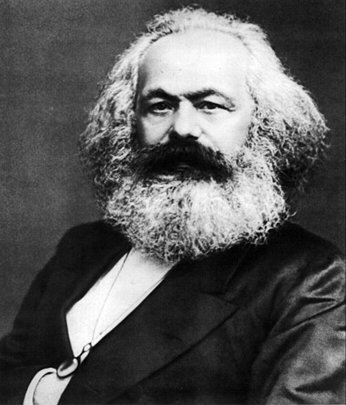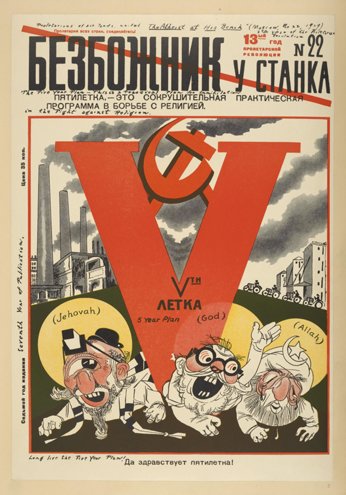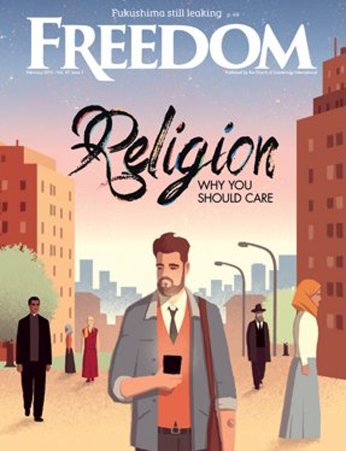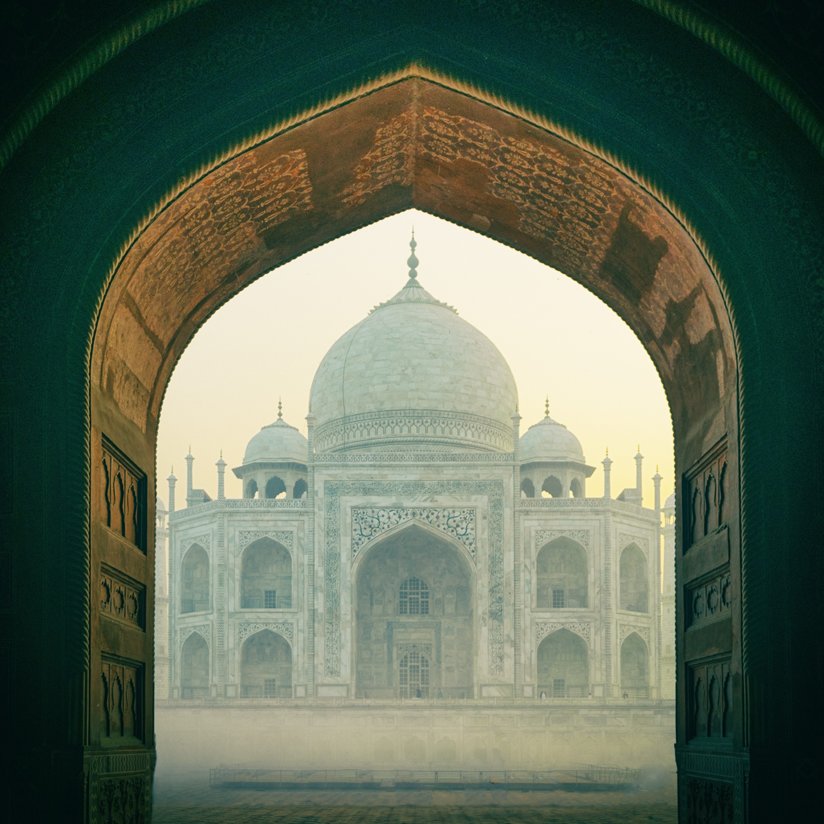Theophobia 101, Part II: Theophobia Goes Global
This is Part II of a series on theophobia—hatred and fear of religion. Part 1 traced the roots of modern theophobia to the pseudo-science of psychiatry, and how organized psychiatry targeted religion for extinction through subversion, sabotage and outright genocide. In Part II, we’ll explore the spread of theophobia, and its influence today.
Back in 1940, World Federation of Mental Health cofounder John Rawlings Reese said, “If we are to infiltrate the professional and social activities of other people, I think we must imitate the totalitarians and organize some kind of fifth column activity.” A “fifth column” would be citizens secretly aiding the enemy through sabotage and espionage.

But the totalitarians were already doing the reverse, imitating the psychiatrists, in some cases using psychiatry itself as a tool to eradicate religion. Russia, with its history of wiping out Jews during the time of the tsars, now widened its sights to religion itself after the Communists took over in the 20th century. Seventy-five years earlier Karl Marx, author of The Communist Manifesto, had written, “The abolition of religion as the illusory happiness of the people is the demand for their real happiness. To call on them to give up their illusions about their condition is to call on them to give up a condition that requires illusions.”
Accordingly, the Soviet leadership set out to do just that: abolish religion.
From the years 1921 to 1950, an estimated 15 million Christians were killed in the Soviet Union. Churches, mosques and synagogues were either destroyed or put into secular use. In 1937 alone, nearly 90,000 Russian Orthodox clergy were put to death as “enemies of the State.” Atheism was the official state “religion,” with ordinances passed banning any non-atheist from holding any important political position or pursuing any kind of meaningful career.
Soviet satellite states like Albania and Romania constitutionally banned religious activity—torturing, imprisoning and executing many clergy. Albania declared itself free from all religion in 1967 and celebrated its status as a fully atheist state.

As the 20th century wore on, the Soviets, taking their cue from the West, stopped simply murdering their dissidents and people of faith, but began “diagnosing” them instead, with the help of psychiatrists. Religious people would be carted off as “insane” to receive “therapy,” often never to be seen again.
To be religious or to practice a religion was a most dangerous thing in the Soviet Union. This writer recalls his parents journeying to the Soviet Union at great personal risk in 1976 to smuggle Jewish prayer books and Bibles to groups practicing their faith in hiding. Though informed on and detained for questioning, my parents managed to succeed in their mission and returned home safely to the U.S.
Russia’s totalitarian neighbor, China, also regarded religion as an enemy of the State. When the government of Mao Zedong seized control in the late 1940s, it wasted no time before attacking all religions. Mao compared clergy to Nazis in the late war. Prohibitions were swiftly enacted on all public ceremonies, prayers, songs and other trappings of faith. Since the workers had triumphed in their struggle and the “revolution” had been won, there was now no need for “the old”—as such Chinese staples as religion and the family unit were now called. People were encouraged to strip off the clerical robes of any clergy seen wearing them in public. Like the Soviet Union, churches, temples, mosques and shrines were torn down or converted to secular buildings, while people practicing their faith were imprisoned and often executed. Unlike its neighbor to the north, however, religion was not replaced with atheism. In China, recognizing the deeply-rooted need for faith in something, Mao instituted a new religion, officially sanctioned by the state: Maoism.
Is religion that dangerous or irrelevant? Should we consider being evangelical about the gospel of Nothingness?
In our own time, the anti-religion movement continues through influential individuals or groups, who, possibly unaware of theophobia’s dark roots in psychiatry and totalitarianism, preach the gospel of materialism, and target religion as something destructive and false.
One such is the Freedom From Religion Foundation (FFRF) a nonprofit organization based in the U.S. and founded in 1978. Boasting 32,000 members, the FFRF uses lawsuits, not torture and imprisonment, to achieve the goal of a religion-free society. These lawsuits, while purportedly enforcing the Constitutional separation of Church and State, in truth use the courts and the media to stamp out religion itself. Among the dozens of lawsuits filed, for instance, are many calculated to remove any and all trappings of religion in public places—from Nativity scenes to World War II memorials on crosses to displays of the Ten Commandments. Court filings have also attempted (and sometimes succeeded) to strip funding from faith-based drug and prison programs, scholarship and aid to faith-based colleges and even a (failed) attempt to abolish the White House Office of Faith-Based and Community Initiatives.

Annually the FFRF grants its The Emperor Has No Clothes award to the public figure it deems has done the most to advance and promote the shortcomings of religion itself. Allied, not surprisingly, with psychiatry, the FFRF also sponsors The Clergy Project (TCP) which grants free psychotherapy sessions to aid clerics of all faiths to relieve themselves of their religious beliefs and effect a smooth and trouble-free career transition, unburdened by guilt or doubt.
A recent prominent “antitheist,” Christopher Hitchens, engaged in lively debates with religious leaders to promote a religion-free agenda. A typical exchange occurred in a debate between Hitchens and Al Sharpton, when an audience member asked a question of Hitchens:
AUDIENCE MEMBER: My question is, to Christopher, how you can justify wanting to take something away from people that gives meaning to 95% of the American people, replace it with something that gives meaning to just 5% of the American people?
HITCHENS: Ha, well, what an incredibly stupid question. First, I’ve said repeatedly that this stuff cannot be taken away from people. It is their favorite toy and it will remain so as long—as Freud said in The Future Of An Illusion, it will remain that way as long as we’re afraid of death and have that problem which is, I think, likely to be quite a long time. Second, I hope I’ve made it clear that I’m perfectly happy for people to have these toys and to play with them at home and hug them to themselves and so on, and share them with other people who come around and play with the toys, so that’s absolutely fine. They are not to make me play with these toys. I will not play with the toys. Don’t bring the toys to my house. Enough with clerical and religious bullying and intimidation. Is that finally clear? Have I got that across? Thank you.
Well, is religion that dangerous or irrelevant? Should we consider being evangelical about the gospel of Nothingness? Shall we take John Lennon at his word and “imagine” no religion, no heaven above, “living only for today?”
Statistics tell us otherwise.
There are those who regard religion as a threat to their bottom line, and attack it by whatever means, no matter how destructive the consequences.
A 2001 Columbia University study found that adults who never attended religious services were five times likelier to have used illicit drugs and seven times likelier to have engaged in binge drinking, compared with those who worship weekly. Teens who were not religious were nearly three times likelier to binge drink, and seven times likelier to use illicit drugs. Other studies also show the beneficial effects of religion on mental and physical health, and on life expectancy.
In 2015, the Church of Scientology’s Freedom magazine, took John Lennon’s dare, and imagined what a world without religion would be like. If “a temporary blip in the universe suddenly resulted in religion somehow not existing for a 24-hour period,” the effects would be catastrophic, some of which would include:

Millions going hungry. 64 percent of the agencies giving food to individuals and families are affiliated with religious institutions.
Drastic reduction in community services and volunteerism. 45 million volunteers are connected with faith-based groups. That’s nearly half of all volunteers helping with disaster relief, daycare, and community programs in general.
Disastrous effects in higher education. Nearly one-fifth of American colleges and universities bear a religious affiliation, educate 2 million students, employ over 650,000 faculty and staff, and have budgets amounting to more than 35 billion dollars.
Hospitals shutting down. Nearly one-fifth of our hospitals are affiliated with religious institutions. There would be a humanitarian crisis of staggering proportions with a 20 percent decline in medical care overnight.
Most philanthropic charity work would vanish. And with it, compassion towards those in need, at-risk families and children left to fend—billions gone in contributions to the needy here and in developing nations, and famine and disease reaching untenable levels.
Generally, we would take less care of each other, show less empathy, feel lonelier (lacking a sense of community) and—that’s right—no practitioner to turn to in our spiritual distress other than the loving care of psychiatrists, who are themselves too theophobic to help us turn our attention to anything higher and finer than the law of tooth and claw.

There are those who, after honest reflection and study, conclude that religion is not for them. And that’s fine. We all have the God-given power of reason, and we all have the right to exercise it whenever and however we choose to secure a better life for ourselves and our loved ones.
But there are those who regard religion as a threat to their bottom line, and attack it by whatever means, no matter how destructive the consequences. These are the true theophobes, who hate and fear religion.
So the next time someone tells you to leave the important matters of life, death, wellness and the nature of things to “the professionals,” remember the old saying: “The Titanic was built by professionals. The Ark was built by people of faith.”










